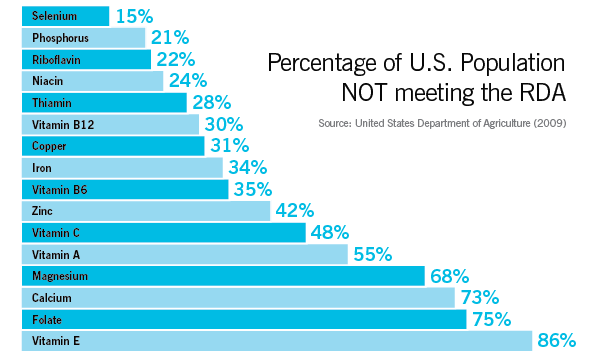Do you need to count calories?

We have all heard the term “calories in vs calories out.” You see articles, social media posts and fitness pros describing body composition as a simple math equation. Further, these pros suggest that to lose weight you just need to move more and eat less while being hyper-vigilant on total calorie intake. While the calories in-calories out equation remains somewhat true in a literal sense, there are many variables and factors that influence the end result in terms of body composition.
For starters, what we eat, isn’t necessarily what we absorb, and what we absorbed is highly influenced by numerous factors. These factors include, but are not limited to: total energy density of your food, current hormone levels that regulate different processes, how stressed you are on any given day, or if you have been chronically stressed, hydration status, sleep patterns, how your food was cooked or prepared, your personal microbiome, gut health and overall health status. Healthy food choices will have a positive influence on the above variables while unhealthy processed foods (even ones lower in calories) are likely unsupportive and can therefore compromise your health goals. In fact, The World Health Organization found sufficient evidence linking a high consumption of nutrient poor, energy-dense foods to the global obesity epidemic and other chronic diseases.(1) I have had clients describe their nutrition as “good” referencing the fact that they “only ate 1100 calories yesterday.”, but in the form of a sugary coffee at Starbucks followed by dinner at Jack-in-the-Box later in the evening.
Broken down further, we can use the example of an avocado that has 350 calories, vs a bag of Cheetos that has 250 calories. The calories in calories out model would suggest, that for weight loss Cheetos would be the best option. However, if you take a closer look at an avocado, you notice that despite being higher in calories, the nutrient-density displays a vital source of vitamins and minerals, such as B-vitamins, vitamin K, potassium, copper, vitamin E and vitamin C. The nutrient-dense avocado, with all of its vitamins and minerals has a much more positive impact on health and will give off the right signals so the body thrives instead of declines and functions properly. In contrast, Cheetos, despite the fact that they are lower in calories have almost zero nutritional value, and are highly processed. They do not offer the supportive vitamins and minerals, and the chemical ingredients can signal the body to do the wrong things.
What’s the takeaway? Often with clients, we get into a conversation about how many calories they should be eating. Instead of focusing on a calorie number (although sometimes a “ballpark number” is ok), I have encouraged people to consume a wide variety of nutrient-dense foods that are minimally processed with the goal being to allow the body to fire off the right signals (tell it how to perform best). For those of you who use Cronometer, we can get an estimate of how your current food choices satisfy your micronutrient requirements. (Vitamins and Minerals). I say estimate because the FDA allows inaccuracies of up to 20% on label calorie counts, and a report in the January 2010 issue of The Journal of the American Medical Association found misleading food packaging errors with inflated health benefits.(2) So food tracking does have it’s limitations, but despite these limitations, it gives us much more information about estimating current intakes vs. someone who is not tracking. Deficiencies are common in just about every new client that start nutrition coaching with me. There is growing interest and evidence in the role of the micronutrients in optimizing health, and in the prevention or treatment of disease.(3)

In conclusion, it is important for people to stop viewing food as just calories, and that their daily calories shouldn’t go above or below a specific number (within reason). Instead, they should recognize the power a nutrient-dense diet has on the body. Not all calories are equal, and in fact it’s quite the opposite. Weight loss is not as simple as moving more and eating less. Eating a nutrient-dense diet will allow your body to deliver the right messages (hormone optimization, enhance organ function, fight inflammation, burn fat, fall asleep, recover from your workout, build muscle, have energy, be happy etc..) while a diet full of processed foods with minimal nutrient density can send the wrong message to your body (store fat, zap your energy, make you hungry too often, make you hyper, be moody, depressed, struggle with sleep etc…)
If you have not signed up for Cronometer, get with me today so we can do a 7-day food journal that can look at your current intake of vitamins and minerals and discuss how they may be affecting your health and results.
Dan Tatro-M.S.,CSCS
REFERENCES
1. Drewnowski, A. Concept of a nutritious food: toward a nutrient density score, The American Journal of Clinical Nutrition, Volume 82, Issue 4, October 2005, Pages 721–732, doi.org/10.1093/ajcn/82.4.721
2. Nestle M, Ludwig DS. Front-of-Package Food Labels: Public Health or Propaganda? The Journal of the American Medical Association. 2010;303(8):771–772. doi:10.1001/jama.2010.179
3. Shenkin A. Micronutrients in health and disease. Postgrad Med J. 2006;82(971):559–567. doi:10.1136/pgmj.2006.047670




